Healey starts push to end homelessness among veterans
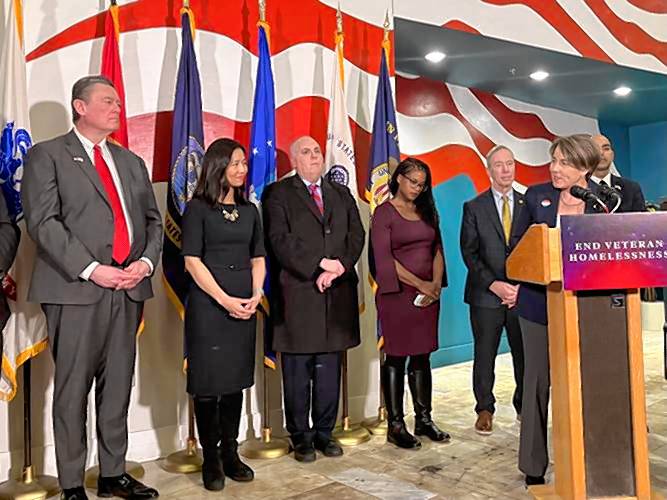
Gov. Maura Healey announced a $20 million campaign to end veteran homelessness at the New England Center and home for Veterans in downtown Boston on Tuesday. She was joined by Housing and Livable Communities Secretary Ed Augustus, Boston Mayor Michelle Wu, Boston City Councilor Ed Flynn, Sen. Lydia Edwards, Congressman Stephen Lynch, and Secretary of Veterans Services Jon Santiago. ALISON KUZNITZ/SHNS
| Published: 03-10-2024 5:00 PM |
BOSTON — Gov. Maura Healey announced a $20 million campaign Tuesday to end veteran homelessness as she lamented the hundreds of former Massachusetts service members who have nowhere to call home.
The governor said the effort, funded primarily through federal COVID relief money appropriate by the Legislature in 2021, is the largest investment to curb veteran homelessness in state history.
Healey detailed the campaign at the New England Center and Home for Veterans alongside Cabinet secretaries and elected officials, including Boston Mayor Michelle Wu and Congressman Stephen Lynch. Roughly 500 to 600 veterans experience homelessness on any given night, and hundreds more are grappling with housing insecurity, Healey said as she cited the Point-In-Time count.
“Our goal is to reach out to every single one of them with the offer of permanent, quality, affordable housing that they deserve, and that they need,” Healey said. “Our goal is to be there for them, just as they were there for us.”
Healey added, “No one who served our country should ever have to worry about having a roof over their heads. Period.”
The campaign will focus on direct street outreach, housing counseling, case management and financial support, the administration said. Healey said the campaign will provide more mental health and substance abuse services.
Secretary of Veterans Services Jon Santiago said the campaign includes capital investments to help acquire, rehabilitate and construct affordable housing for veterans, as well as funding for veteran services providers. There will also be an advisory council focused on ending veteran homelessness, the administration said.
No legislative vehicle is needed to launch the homelessness prevention campaign, Santiago said. It’s too early to know how many housing units, including for veterans and their family members, could be created, he said.
Article continues after...
Yesterday's Most Read Articles
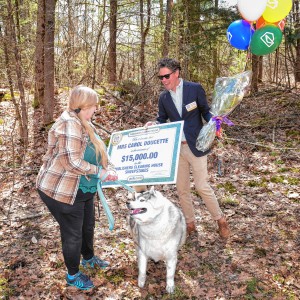 Carol Doucette of Royalston receives $15,000 from Publishers Clearing House
Carol Doucette of Royalston receives $15,000 from Publishers Clearing House
 Magic comes to Red Apple in Phillipston
Magic comes to Red Apple in Phillipston
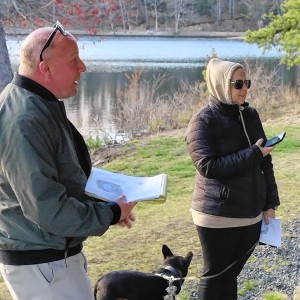 Plan calls for upgrades to Silver Lake in Athol
Plan calls for upgrades to Silver Lake in Athol
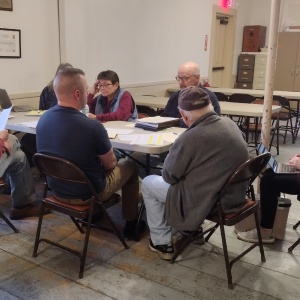 Royalston’s FinCom debates proposed salary increases
Royalston’s FinCom debates proposed salary increases
 Locking up carbon for good: Easthampton inventor’s CO2 removal system turns biomass into biochar
Locking up carbon for good: Easthampton inventor’s CO2 removal system turns biomass into biochar
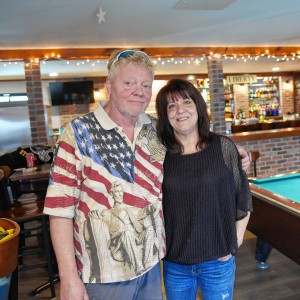 Liberty Taphouse to open in Athol
Liberty Taphouse to open in Athol
“Oftentimes the veterans service provider, they don’t have the technical assistance to write the grants, to find support they need,” Santiago said. “So we thought putting at least $10 million into this capital investment was the right thing to do to really expedite some of that creative thinking that is happening in cities and towns across the commonwealth, particularly in our veterans’ urban communities.”
In separate housing efforts, Santiago said residential capacity is expected to double in the coming years at the Veterans Home at Chelsea and the Veterans Home at Holyoke.
While the number of homeless veterans has dropped significantly over the past decade, Santiago said the decline has plateaued in recent years.
The vast majority of homeless veterans are staying in transitional housing, with only about 30 individuals who are unsheltered, Santiago said. Veterans represent 3 percent of the state’s homeless population, Healey’s office said.
New Bedford, Lowell and Lynn have already reached a veteran homelessness rate of “functional zero,” the administration said. The term means that homelessness is “rare, brief, and non-recurring” due to sufficient resources and support services, the administration said.
In Boston, officials have managed to slash the rate by 50 percent over the last decade, Wu said as she voiced support for Healey’s plan to eliminate barriers for veterans to access housing and other services.
“We are nowhere near satisfied with that number,” Wu said, describing veteran homelessness as a “particular injustice that we cannot let stand.”
Housing and Livable Communities Secretary Ed Augustus expressed optimism about collaborating with Santiago’s office to offer education and outreach, strengthen connections with homeless veterans and find “permanent housing solutions.”
“And we could work with our community-based providers to ensure supportive housing and wraparound services,” Augustus said. “We can and we will accomplish these goals together.”
Healey said her proposed $4.1 billion housing bond bill, which cleared the Housing Committee Monday, would also significantly boost funding for veterans housing.
“We’ve moved the bond bill along – we have a lot to get done,” Sen. Lydia Edwards, co-chair of the committee and a first lieutenant officer in the Massachusetts Army National Guard, said.
Edwards, speaking about the importance of family housing units, urged officials to not forget about veterans’ partners and their children.
“So welcome back to all the veterans, and we will continue to make sure that you can actually have a home to go to,” she said.

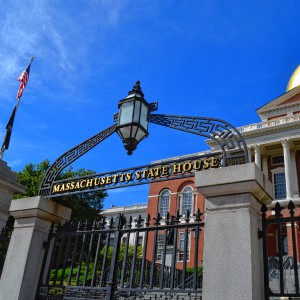 Over $400M in shelter funding, new limits approved
Over $400M in shelter funding, new limits approved PHOTO: Spectacular spire
PHOTO: Spectacular spire